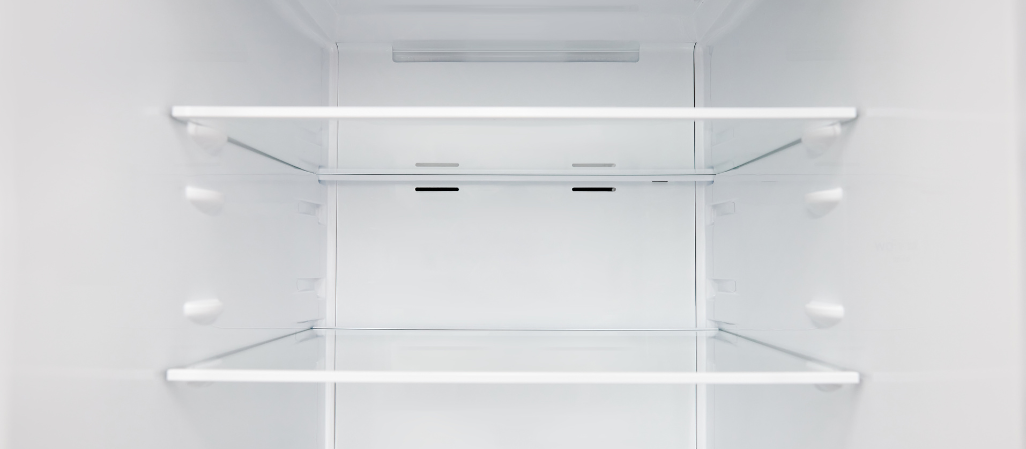A 101 Guide to Buying a Laboratory Refrigerator

Cold storage is essential for most laboratories. From storing testing samples to lab chemicals, laboratory refrigerators are indispensable. The wrong kind of refrigerator can result in spoiled substances and substantial financial losses.
This article will eliminate the guesswork and highlight what you must consider when purchasing a laboratory-grade refrigerator.
Start with Features
First, examine the features of each potential laboratory refrigerator. Ask yourself what would work best for your daily needs. If you're not sure where to start, consider the features below.
Superior Temperature Control
It is crucial to examine the temperature control feature in every lab fridge and thoroughly investigate the mechanism in each potential unit. A purpose-built laboratory refrigerator should ideally have a microprocessor temperature controller due to its digital accuracy and strict temperature control, along with its high-speed technology that monitors and regulates temperature with precision.
Temperature uniformity is especially critical in vaccine storage. Carefully select a temperature range that matches the storage requirements for vaccines. Investing in a temperature data logging device to ensure your unit meets the demanding requirements of scientific and medical applications may substantially help your applications.
Healthcare facilities should be particularly vigilant about temperature monitoring. Clinical samples and supplies are often more sensitive to temperature, and more is at stake if a temperature range fluctuates from its setpoint. Whatever your industry, scientific or clinical, superior temperature control is crucial for lab refrigerators.
Size and Storage
What space do you have available? Remember, purpose-built lab refrigerators can deliver high performance at any size. If your setting is cramped, consider under-counter or countertop models. ADA-compliant models are an excellent option to meet ADA regulations in a space-saving design.
What if you have a large facility? Some healthcare, scientific, and research laboratories need vast amounts of storage. If this is you, consider spacious, multi-door models.
If your lab stores flammable or volatile substances, purchase cold storage units explicitly made for these substances.
Doors and Shelving
Open each prospective refrigerator and look inside the shelving. Which models offer enough shelving for your samples and supplies? Are adjustable shelves important to your application, or will fixed shelves work better?
Decide whether you would benefit from a glass or solid door design. A glass door will enhance the visibility of stored contents, and a solid door can increase security measures.
Self-closing doors are also highly recommended to stabilize inner cabinet temperatures. They can also minimize waste caused by accidents or carelessness when doors are left open. Considering your application will help determine the internal storage layout that best suits your needs.

Refrigerator Locks and Temperature Alarms
It is essential to check if your refrigerator has a security system or keyed door locks. These safety measures prevent unauthorized personnel from accessing the refrigerator and its contents.
You should also check if your refrigerator has built-in temperature alarms and remote contacts. The remote alarm contacts can be easily connected to your laboratory's central alarm system. These alarms help you stay alert if the temperature rises or falls outside the programmed settings, which is a great way to keep your laboratory safe.
While general-purpose applications may not require equipment with temperature alarms or remote alarm contacts, both options offer additional protection in laboratory settings.
Air Circulation and Temperature Stability
Investigate the unit's air circulation system. Forced draft air circulation is recommended for its adequate cool-air circulation, ensuring uniform cooling throughout. This helps keep all samples and stored contents within the correct temperature range and prevents uneven temperature pockets that can cause damage.
A forced draft air circulation system also minimizes large swings outside the recommended temperature range whenever the door is opened. Laboratories may overlook air circulation features in cold storage units. However, forced draft air circulation and a microprocessor temperature controller can make all the difference in ensuring reliable storage and high-performance results.
Laboratory Applications
A wide variety of laboratory refrigerators are designed for specific applications, materials, and more. For example, some labs require specialized cold storage for hazardous locations or flammable substances. Other fridges may be better suited for pharmaceutical or vaccine storage based on features, certifications, and monitoring systems.
Be sure to know what may be required of each application and which units can support those applications. Failure to adequately store samples and other substances could lead to insufficient results.
We hope you have found this article helpful in your decision-making process for your future laboratory refrigerator. This information has been provided by American Biotech Supply (ABS), which supplies premium laboratory refrigeration for ultimate accuracy and untouched efficiency. If you need additional information or assistance, contact our excellent sales team at 800-733-2522, [email protected], or message us via Live Chat on our website.
Sources:
Information courtesy of American Biotech Supply.





